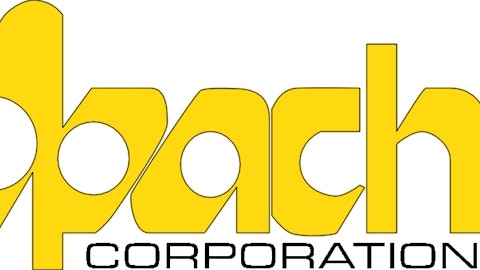The tragic 2010 oil spill in the Gulf of Mexico is now more than three years in the past. However, lingering effects still exist and are serving as anchors on the performance of the companies involved in the incident.
That’s why it’s so important to put BP plc (ADR) (NYSE:BP) and Transocean LTD (NYSE:RIG) under the spotlight, to determine whether there’s more pain in store for investors.

A difficult three years
To say that BP plc (ADR) (NYSE:BP) and Transocean have paid dearly for the mistakes made surrounding the 2010 Gulf spill would be an understatement.
In particular, BP plc (ADR) (NYSE:BP) continues to set aside huge sums of money to cover continuing claims, and is now trying to claw back some of what it has paid. The company objects to a great deal of the claims coming in, with Chief Executive Officer Robert Dudley stating his intent to aggressively fight what he termed ‘false and fictitious claims’.
Indeed, there’s reason for BP plc (ADR) (NYSE:BP) to worry. Under a 2012 settlement to compensate businesses that incurred damage from the spill, BP originally estimated that the cost would be $7.8 billion. Then, after releasing poor second-quarter results, which saw adjusted profit fall 25% year over year, BP advised investors that the settlement would cost closer to $9.6 billion, and that the final total would be even higher.
All told, BP plc (ADR) (NYSE:BP) has shelled out $42.4 billion, as of the end of its second quarter, due to the Gulf spill. And, more damage is in store, since BP still faces the prospect of forking over billions more once its civil trial has concluded.
Transocean back in action
Meanwhile, the situation is drastically different for Transocean LTD (NYSE:RIG), the owner of the rig that exploded. Transocean pleaded guilty to violating the Clean Water Act and was forced to pay $400 million, in addition to other penalties, earlier this year.
However, Transocean LTD (NYSE:RIG) has more than enough financial ability to recover, as its underlying business has gotten back on track. Revenue is up 3.5% over the first half of the year, and the company booked more than $1 billion in operating profit over the first six months alone.
Furthermore, the company has taken advantage of the global uptick in offshore drilling, and is well-positioned going forward. Transocean LTD (NYSE:RIG) has an immense $27.3 billion contract order backlog, and is in the process of expanding its fleet to meet the increase in demand for deep-water drilling. Since July 17 alone, Transocean has secured $2.5 billion of total value of new contracts.
At the same time, the stock price has languished, unable to meaningfully breach $50 per share since the spill. From a valuation perspective, Transocean LTD (NYSE:RIG) now trades for 11 times its 2012 adjusted EPS.
This combination of strong operating performance and a stagnating stock price has caught the attention of famed activist investor Carl Icahn, who has become increasingly involved with Transocean over the past couple of years. Icahn, now the largest Transocean LTD (NYSE:RIG) shareholder, holds a nearly 6% stake worth $1 billion, and has stated his belief that the company is undervalued.
The final verdict
It appears that Transocean is more likely to come out of this unscathed, relative to BP plc (ADR) (NYSE:BP)’s situation. Transocean is, for the most part, back to business-as-usual, and its underlying results have firmed in recent periods.
BP, meanwhile, is still spending huge amounts of money on continuing claims, and is almost certainly going to pay billions more once the civil trial concludes. At the same time, BP is a huge company, and has prepared well for further costs with aggressive asset sales. The company should have the financial flexibility to endure even a severe penalty from the civil trial.
In addition, it seems a great deal of the financial damage has been priced into BP shares. Including BP’s $42 billion in damages paid to date, $10 billion in settlements with local businesses and assuming another $10 billion in civil liability, that takes the total tab to $62 billion.
As it happens, BP has already lost roughly $60 billion in market value since the spill. Therefore, it seems the pain is largely priced in.
Moreover, investors can take comfort in the fact that they are being paid well to wait for both BP and Transocean to put this issue behind them once and for all. Each stock pays a competitive dividend. Transocean and BP currently yield 4.9% and 5.2%, respectively. As a result, while Transocean probably has a smoother road ahead of it than BP in the near-term, both stocks look like long-term winners.
The article Does the Gulf of Mexico Oil Spill Still Haunt these Stocks? originally appeared on Fool.com and is written by Robert Ciura.
Robert Ciura owns shares of BP p.l.c. (ADR). The Motley Fool owns shares of Transocean.
Copyright © 1995 – 2013 The Motley Fool, LLC. All rights reserved. The Motley Fool has a disclosure policy.




